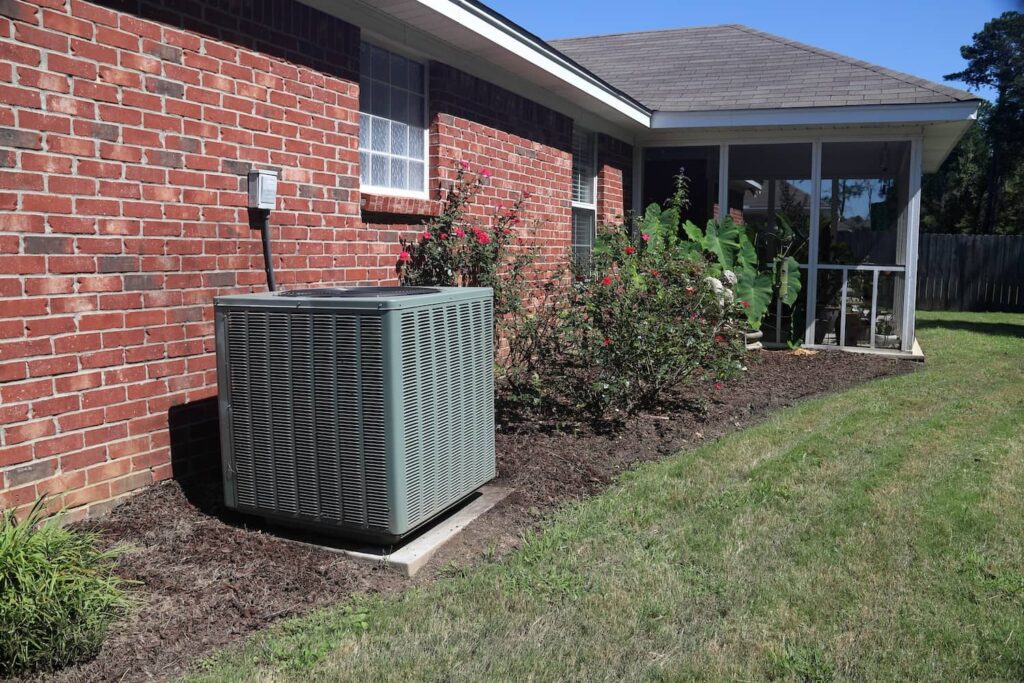Regular HVAC maintenance helps lower energy bills, prevent breakdowns, and extend the lifespan of your heating and cooling system. This guide breaks down the essential HVAC maintenance list and inspection schedule you need to know.
While some tasks are simple enough for homeowners to handle, others require the expertise of a professional to ensure everything runs smoothly–so stay tuned! Whether it\’s seasonal prep or simply avoiding costly repairs, these tips and tasks will help you keep your system functioning all year.
Why Regular HVAC Maintenance is Essential
A well-maintained HVAC system doesn’t just keep your home comfortable—it works more efficiently, saves you money, and helps prevent inconvenient breakdowns.
While only about 30% of homeowners schedule preventative maintenance, regular care ensures your system performs at its best while avoiding costly surprises. Here are the main reasons HVAC maintenance is worth the effort:
- Increases efficiency, helping your system use less energy to heat or cool your home
- Reduces wear and tear on components, extending the life of your HVAC system
- Improves indoor air quality by reducing dust, allergens, and pollutants
- Identifies small issues before they turn into expensive repairs
Neglecting maintenance can lead to higher energy bills, poor air circulation, and unexpected failures when you need your HVAC system the most.
In short, sticking to a regular maintenance schedule not only protects your home but also gives you peace of mind knowing your system is ready to perform when it’s needed most.
Tasks You Can Handle Between Inspections
Some HVAC maintenance tasks are simple enough to handle on your own, helping you keep the system running efficiently between professional visits.
By staying consistent with these tasks, you can reduce wear and tear on your equipment and catch small issues before they escalate.
- Replace air filters regularly, typically every 1–3 months depending on usage and filter type
- Dust and clean air vents to maintain strong airflow and prevent blockages
- Keep the outdoor unit free of debris like leaves, grass, and dirt
- Inspect the thermostat settings and batteries to ensure accurate temperature control
- Look for visible signs of wear or damage on ductwork and registers
What Professionals Cover During an HVAC Inspection
While DIY tasks are helpful, professional HVAC inspections go far beyond what homeowners can manage on their own.
Experts use specialized tools and training to ensure your system is operating at peak performance, catching issues that may not be visible to the untrained eye.
- Checking and adjusting refrigerant levels to maintain proper cooling efficiency
- Cleaning condenser and evaporator coils to improve energy use and airflow
- Inspecting and tightening electrical connections to ensure safe operation
- Testing key components like fans, motors, and safety controls for functionality
- Evaluating ductwork for leaks, blockages, or insulation issues
Smart Maintenance and Inspection Schedule
- Monthly: Replace air filters and clean air vents
- Seasonal: Clear debris from the outdoor unit, inspect ductwork, and test thermostat settings
- Annual: Schedule a professional inspection and tune-up before peak usage seasons (summer and winter)
Other Recommended Maintenance
- Check and maintain related systems like humidifiers, dehumidifiers, or air purifiers
- Ensure windows, doors, and attics are properly sealed and insulated to reduce strain on the HVAC system
- Monitor your energy bills for unexpected spikes, which may indicate inefficiency or hidden system issues
When to Call a Professional
If your HVAC system is making strange noises, emitting unusual odors, or struggling to maintain a consistent temperature, it’s best to call in a professional. These signs often indicate deeper problems that require specialized tools and knowledge to address safely and effectively.
Another key indicator is an unexpected spike in your energy bills. This could signal inefficiencies in your system, such as a failing component or an airflow issue, that need professional attention. Visible leaks around the unit, weak airflow, or noticeable damage to parts of the system are also reasons to schedule an inspection.
Timely inspections help avoid costly repairs or replacements and ensure your HVAC system is safe, efficient, and reliable.
Conclusion
A well-maintained HVAC system is essential for a comfortable, efficient home—it\’s easy when your inspection schedule is on track and maintenance list tasks are routine. However, professional inspections remain a critical part of the process, offering expertise that DIY care simply can’t match.
When you’re ready to give your HVAC system the care it deserves, Champia’s experienced Atlanta team is in your corner. From comprehensive inspections to actionable recommendations, we’ll make sure your system stays in peak condition year-round—contact us today.
